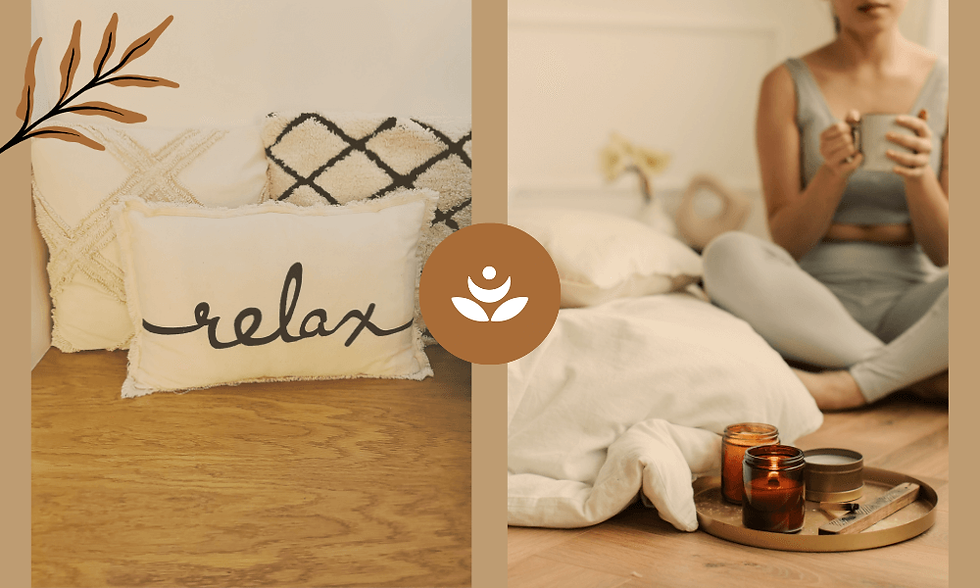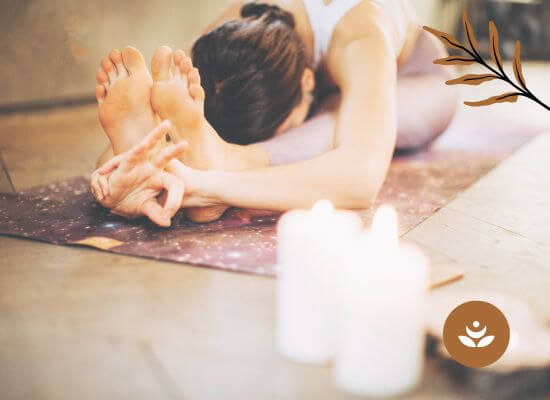Mindfulness: A Simple Practice for a Busy World
- Jenny Jarvis
- Mar 6, 2025
- 3 min read
In a world that constantly demands our attention, mindfulness offers a way to step back, breathe, and fully experience life as it unfolds. It's often thrown around as a wellness buzzword—but what does 'mindfulness' actually mean? And more importantly, how can you practice it in a way that genuinely benefits you?
What Actually Is Mindfulness?
At its core, mindfulness is the practice of paying full attention to the present moment without judgment. It’s about being aware of what’s happening right now—in your body, your mind, and your surroundings—rather than getting lost in thoughts about the past or worries about the future.
It’s simple in concept, yet not always easy in practice. Our minds love to wander. We replay old conversations, stress over to-do lists, and get caught up in distractions. Mindfulness is the skill of noticing when this happens and gently bringing ourselves back to the present

Where Did Mindfulness Come From?
Mindfulness has deep roots in Buddhist meditation, where it has been practiced for thousands of years as a path to self-awareness and enlightenment. However, mindfulness as we know it today is often in the fields of psychology, stress management, and wellness, as despite it's age-old roots, the practise somehow feels more relevant than ever, with stress, anxiety and suicide rates increasing year on year in the Western world.
The key figures who brought mindfulness to the West are Jon Kabat-Zinn, Herbert Benson and Thich Nhat Hanh, who all helped bridge the gap between ancient wisdom and modern medicine, showing how mindfulness can improve mental, emotional and physical wellbeing, with benefits such as: reduced stress, anxiety and depression, improved sleep, pain management, immunity and even increased attention span and brain health!
What Mindfulness Requires (And What It’s Not)
Mindfulness is often mistaken for a quick fix—something to instantly make you feel calm and stress-free. But the truth is, mindfulness isn’t about getting rid of thoughts, achieving constant relaxation, or instantly solving life’s problems. Instead, it requires:
Patience – It is a skill that develops over time, feeling easier some days than others.
Commitment – Just like yoga, mindfulness is most effective when practiced consistently.
Self-Compassion – It’s normal for the mind to wander. The practice is simply noticing this and gently bringing your focus back.
Curiosity – Rather than judging yourself, mindfulness encourages you to be curious about your experiences, thoughts, and emotions.
How to Practise Mindfulness in Everyday Life
You don’t need to sit in meditation for hours to be mindful. Here are simple ways to incorporate mindfulness into your daily routine:
Mindful Breathing – Take a few moments to focus on your breath. Feel the inhale, the exhale, and the natural rhythm of your breathing.
Mindful Walking – Whether you’re walking to work or through nature, pay attention to the sensation of your feet touching the ground, the air around you, and the sounds you hear.
Mindful Eating – Instead of rushing meals, slow down and truly taste your food. Notice the textures, flavours, and sensations.
Body Awareness – Throughout the day, check in with your body. Where do you feel tension? Can you soften or relax those areas?
Gratitude Practice – Take a moment each day to reflect on something you’re grateful for. It can be as simple as a hot cup of tea or a kind smile.
The Real Benefit of Mindfulness
Mindfulness isn’t about "fixing" anything—it’s about being present for your own life. It helps us respond to challenges with more awareness, appreciate small moments, and cultivate a sense of inner calm. Over time, mindfulness can lead to better focus, reduced stress, and a deeper connection to ourselves and the world around us.
Join us on the mat to slow down and reconnect, knowing that each time you bring your attention back to the present, you are strengthening an invaluable life skill.
Namaste peeps – see you on the mat!
A sneaky treat for you: use the code MINDFULNESS for 20% off any class.
(valid on classes only; not valid on pop-ups /workshops/ events).
xxx






Comments